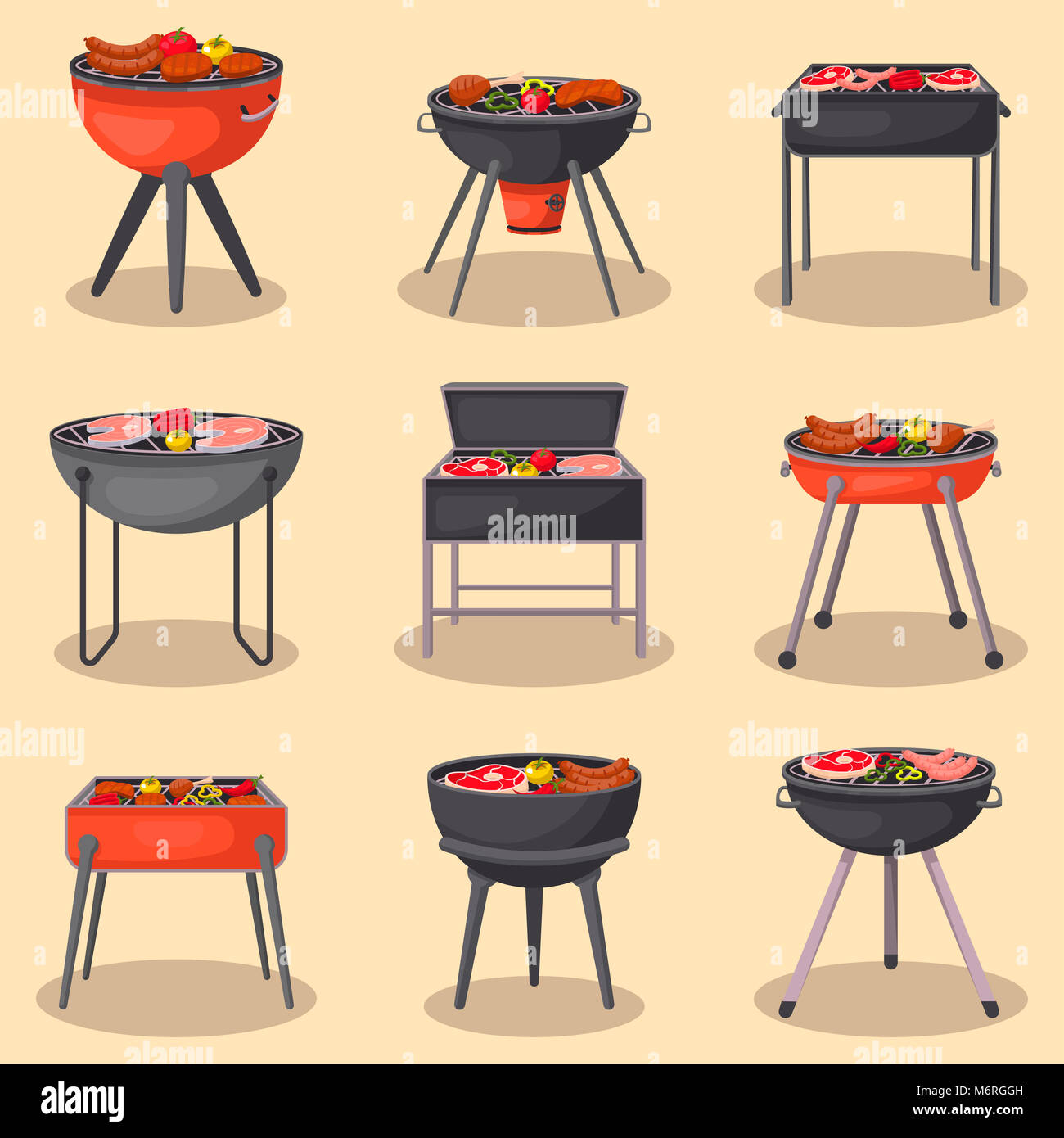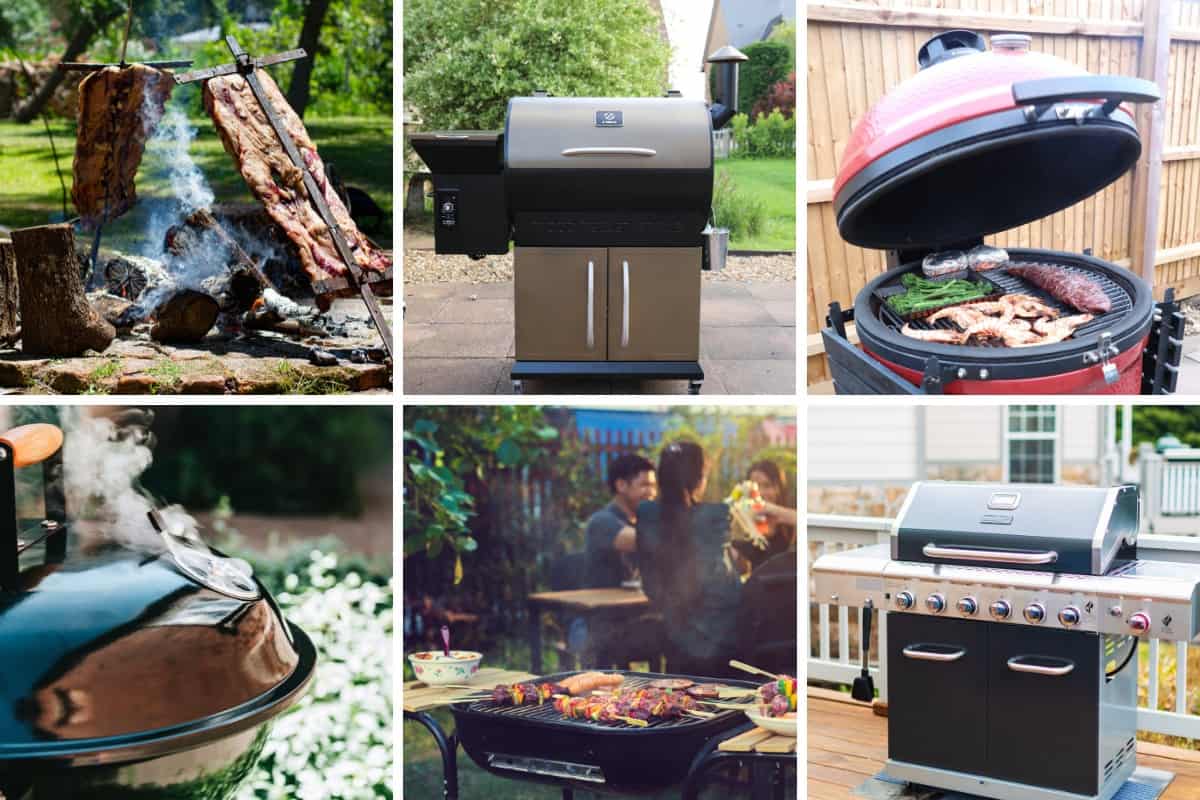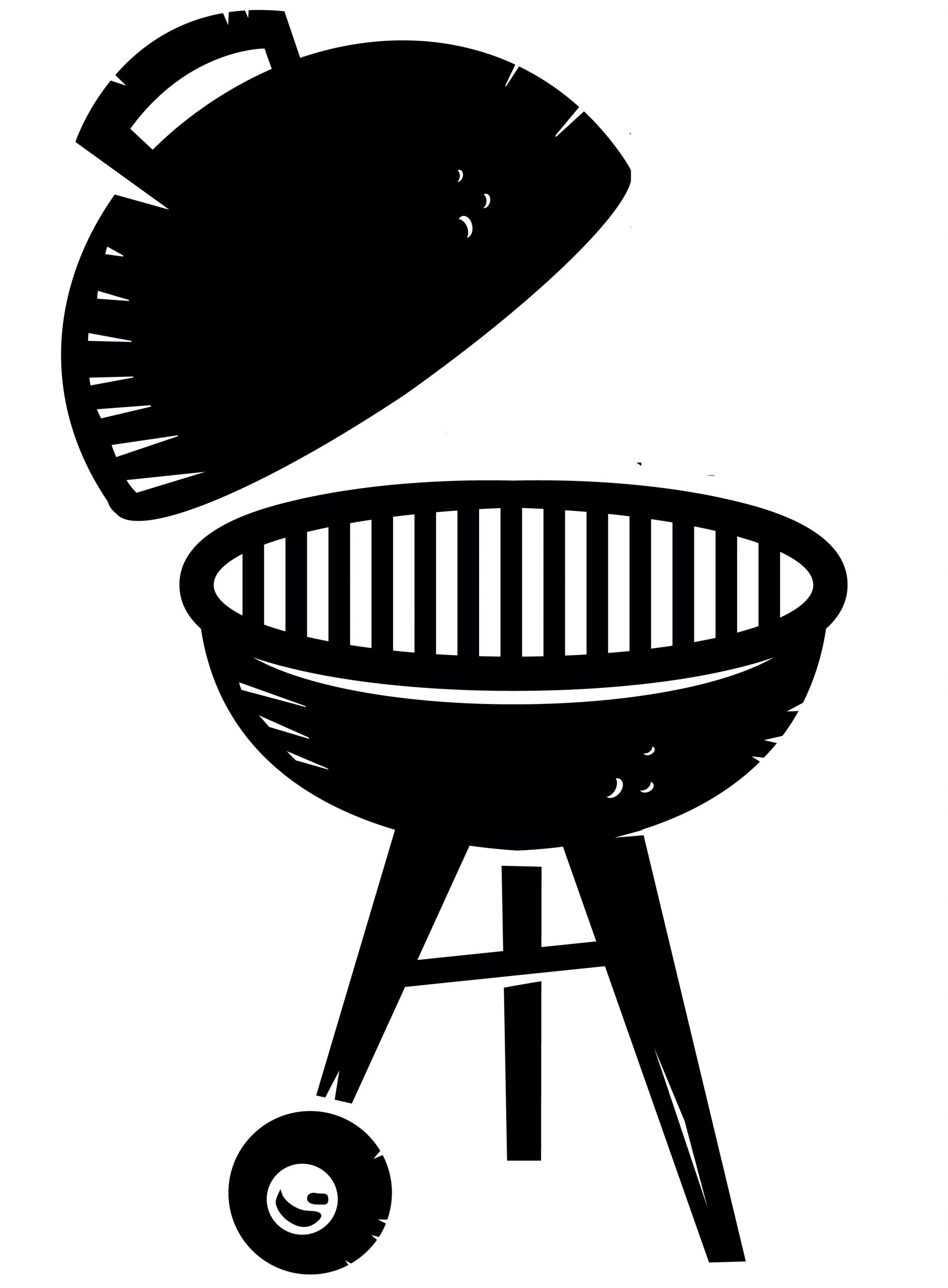When it comes to outdoor cooking, selecting the right grill is essential to achieving the perfect mix of flavor, convenience, and versatility. With numerous grill options available today, each offers unique features that cater to specific cooking styles and preferences. In this guide, we’ll take an in-depth look at the different types of grills, exploring the characteristics, advantages, and potential limitations of each to help you make a well-informed choice for your next outdoor cooking adventure.
Charcoal Grills
Charcoal grills are a staple choice for many grilling enthusiasts due to their ability to deliver a rich, smoky flavor. These grills rely on charcoal briquettes or lump charcoal as fuel, creating an intense heat and unique taste that is hard to replicate with other grills.
Benefits of Charcoal Grills
- Authentic Smoky Flavor: The smoky taste from burning charcoal is a major attraction, enhancing the taste of meat and other foods.
- High Heat Capabilities: Charcoal grills reach high temperatures, ideal for searing steaks and achieving flavorful crusts.
- Portability: Often compact, charcoal grills are perfect for smaller spaces and are easy to transport for camping or tailgating.
- Affordable Price: Generally, charcoal grills are more budget-friendly compared to other grill types.
Drawbacks of Charcoal Grills
- Longer Heating Time: Charcoal grills take about 20-40 minutes to preheat.
- Clean-Up Needs: Removing ash and spent charcoal can be messy and time-intensive.
- Temperature Control Challenges: Precise temperature management can be difficult with charcoal grills, as adjusting the heat requires more manual effort.
Gas Grills
Gas grills are a popular choice for those prioritizing convenience. Fueled by either propane or natural gas, these grills offer quick ignition and adjustable heat settings, making them user-friendly.
Benefits of Gas Grills
- User-Friendly Operation: Gas grills ignite quickly and are ready to cook in minutes, eliminating the need for preheating.
- Temperature Precision: Equipped with knobs, gas grills allow easy control over cooking temperatures.
- Minimal Clean-Up: Producing less smoke and ash than charcoal grills, gas grills are easier to maintain.
- Versatility in Cooking Styles: Many gas grills come with extra features like side burners and rotisserie attachments for varied cooking techniques.
Drawbacks of Gas Grills
- Lacks Smoky Flavor: Gas grills typically don’t provide the rich, smoky flavor of charcoal grilling, though some include smoker boxes for added flavor.
- Higher Initial Cost: Gas grills, especially those using natural gas, tend to have a higher upfront cost.
- Fuel Dependence: Gas grills require a steady supply of propane or access to a natural gas line, which can impact portability.

Electric Grills
For individuals in apartments or areas with fire restrictions, electric grills offer a safe and convenient option. Using electricity to power their heating elements, these grills are perfect for indoor cooking or small balconies.
Benefits of Electric Grills
- Ease of Use: Just plug it in, and you’re ready to cook—electric grills heat up quickly, offering hassle-free operation.
- Indoor and Outdoor Use: Electric grills can be used in various settings, allowing for year-round grilling.
- Space Efficiency: Many electric grills are compact, making them ideal for smaller spaces like apartments and kitchens.
Drawbacks of Electric Grills
- Limited Flavor Profile: Electric grills lack the smoky flavor characteristic of charcoal or wood grills.
- Lower Heat Output: Electric grills don’t reach the high temperatures of gas or charcoal grills, limiting their searing capabilities.
- Electricity Dependence: Since these grills need a power source, they may not be suitable for camping or remote locations.
Pellet Grills
Combining wood-fired flavor with modern technology, pellet grills use wood pellets as fuel and an electronic control system for automated temperature management.
Benefits of Pellet Grills
- Enhanced Smoky Flavor: The wood pellets provide a deep, smoky flavor that’s both unique and consistent.
- Precision Temperature Control: Digital settings allow precise heat adjustments, similar to gas grills.
- Versatility in Cooking: Pellet grills can be used as smokers, ovens, or traditional grills, offering a variety of cooking options.
Drawbacks of Pellet Grills
- Higher Price Point: Pellet grills are often more expensive than charcoal and gas alternatives.
- Electricity Requirement: Like electric grills, pellet grills need a power source to operate their digital controls.
- Maintenance Needs: Regular cleaning of the pellet hopper and auger is necessary to prevent clogs and maintain efficiency.

Kamado Grills
Kamado grills, made from ceramic, are celebrated for their excellent heat retention and versatility. They use charcoal but are designed to maintain consistent temperatures for a variety of cooking techniques.
Benefits of Kamado Grills
- Exceptional Heat Retention: The ceramic construction ensures even cooking and prolonged heat retention.
- Fuel Efficiency: Due to their insulation, Kamado grills require less charcoal than traditional charcoal grills.
- Multi-Functionality: Kamado grills can be used to smoke, bake, roast, or grill, making them highly versatile.
- Long-Lasting Durability: Constructed from high-quality materials, Kamado grills are built to last.
Drawbacks of Kamado Grills
- Higher Cost: Kamado grills are typically more expensive than other charcoal grills.
- Heavy Weight: Due to the ceramic material, these grills are quite heavy, limiting portability.
- Steeper Learning Curve: Adjusting the temperature on a Kamado grill can take practice as it’s sensitive to airflow changes.
Portable Grills
For grillers on the go, portable grills offer a convenient, lightweight solution. These compact grills are ideal for outdoor events like camping, picnics, and tailgating.
Benefits of Portable Grills
- Easy to Transport: Lightweight and compact, portable grills are simple to carry and set up anywhere.
- Fuel Variety: Available in charcoal, gas, and electric options, portable grills cater to different needs.
- Budget-Friendly: Portable grills are often more affordable than full-sized models.
Drawbacks of Portable Grills
- Limited Cooking Surface: Smaller in size, portable grills may not be suitable for large gatherings.
- Restricted Heat Control: Compact grills may lack the precise temperature controls of larger models.
Conclusion
Selecting the ideal grill depends on your cooking style, space, and preferences. Whether you crave the smoky essence of a charcoal grill, the simplicity of a gas grill, or the versatility of a pellet grill, there’s a perfect option for everyone. By understanding the features and unique advantages of each grill type, you can confidently choose a grill that meets your needs and guarantees delicious results every time.
